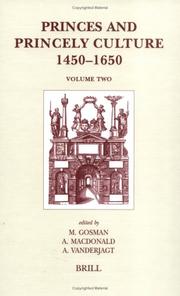| Listing 1 - 4 of 4 |
Sort by
|
Book
ISBN: 9039105359 9028922458 9789028922457 9789039105351 Year: 1997 Volume: *27 Publisher: Kapellen Kampen Pelckmans Kok Agora
Abstract | Keywords | Export | Availability | Bookmark
 Loading...
Loading...Choose an application
- Reference Manager
- EndNote
- RefWorks (Direct export to RefWorks)
Philosophical anthropology --- History of philosophy --- Filosofie van de Middeleeuwen --- Philosophie du Moyen Age --- Filosofie
Book
ISBN: 9789004184961 9004184961 9786612952746 900418497X 1282952749 9789004184978 9781282952744 Year: 2010 Volume: 188 Publisher: Leiden : Brill,
Abstract | Keywords | Export | Availability | Bookmark
 Loading...
Loading...Choose an application
- Reference Manager
- EndNote
- RefWorks (Direct export to RefWorks)
How the West Was Won contains articles in three main areas of the humanities. It focuses on various aspects of literary imagination, with essays ranging from Petrarch to Voltaire; on the canon, with essays on western history as one of shifting cultural horizons and ideals, and including censorship; and on the Christian Middle Ages, when an interesting combination of religion and culture stimulated the monastic and intellectual experiments of Anselm of Canterbury and Peter Abelard. The volume is held together by the method of persistent questioning, in the tradition of the western church father and icon of the self Augustine, to discover what the values are that drive the culture of the West: where do they come from and what is their future? This volume is a Festschrift for Burcht Pranger of the University of Amsterdam.
History of civilization --- Literature --- anno 500-1499 --- Western world --- Canon (Literature) --- Christian literature. --- Christianity and literature. --- Literature, Medieval. --- Europe --- Intellectual life. --- Canon (Literature). --- Europe -- Intellectual life. --- Christian literature --- Christianity and literature --- Literature, Medieval --- Religion --- Philosophy & Religion --- Christianity --- European literature --- Medieval literature --- Christian writings --- Religious literature --- Literature and Christianity --- Classics, Literary --- Literary canon --- Literary classics --- Best books --- Criticism --- History and criticism

ISBN: 9004135723 9004136908 9789004135727 9789004136908 9786610859412 142942690X 9047404858 1280859415 1433705508 9004253521 9789047404859 9781429426909 9781433705502 Year: 2003 Volume: v. 118 Publisher: Leiden ; Boston Brill
Abstract | Keywords | Export | Availability | Bookmark
 Loading...
Loading...Choose an application
- Reference Manager
- EndNote
- RefWorks (Direct export to RefWorks)
Many products of medieval and renaissance culture – literature, music, political ideology, social and governmental structures, the fine arts, forms of devotional piety, and also the social, political and literary self-representation of rulers – found their best expression in the context of the courts of greater and lesser princes. This second volume on princes and princely culture between 1450 and 1650 – the first was published in 2003 as volume 118/1 in this series – contains twelve essays. These are focused on England under Edward IV, Henry VII and Henry VIII, Elizabeth I, and under James I and Charles I. The late fifteenth-century imperial court is treated in a piece on Matthias I Corvinus. The courts of Italy are represented by chapters on those of the Po Valley, the Medici of Florence, the Papal courts of Pius II and Julius II, and of Naples. Spanish court culture is discussed in contributions on Charles V, Philip II, and on Philip IV.
History of Europe --- anno 1600-1699 --- anno 1400-1499 --- anno 1500-1599 --- Princes --- Art patronage --- Politics and culture --- Mécénat --- Politique et culture --- History. --- Histoire --- Europe --- History --- Court and courtiers. --- Kings and rulers. --- Cour et courtisans --- Rois et souverains --- Mécénat --- 15th century --- 1492-1648 --- Court and courtiers --- Kings and rulers --- 78.24 --- Culture --- Culture and politics --- Arts patronage --- Business patronage of the arts --- Corporations --- Maecenatism --- Patronage of art --- Art and industry --- Royalty --- Courts and courtiers --- Political aspects --- 1500-1800
Book
ISBN: 1282401440 9786612401442 9047429753 9004176314 Year: 2009 Publisher: Leiden ; Boston : Brill,
Abstract | Keywords | Export | Availability | Bookmark
 Loading...
Loading...Choose an application
- Reference Manager
- EndNote
- RefWorks (Direct export to RefWorks)
It is a misconception that Christianity and Humanism are in any way in conflict with each other. The present book shows that through many centuries, and especially in the Renaissance, the two stood in a relation that was mutually complementary. The contributions in this volume treat aspects and manifestations of this cultural symbiosis, and they throw new light on authors and texts both more and less familiar. The subject-areas discussed include: religion, history, philosophy, literature and education. The age of Renaissance and Reformation is the central focus, but earlier and later periods are also featured. The contributions comprise a Festschrift for Professor Arjo Vanderjagt, whose work deals centrally with both Christianity and Humanism. Contributors are Fokke Akkerman, István P. Bejczy, Alexander Broadie, Chris-toph Burger, Marcia L. Colish, Albrecht Diem, Stephen Gersh, Berndt Hamm, Volker Honemann, Adrie van der Laan, Alasdair A. MacDonald, Peter Mack, Zweder von Martels, Matthieu van der Meer, Hans Mooij, Simone Mooij-Valk, Just Niemeijer, John North, Willemien Otten, Jan Papy, Detlev Pätzold, Rob Pauls, Marc van der Poel, Burcht Pranger, Peter Raedts, Han van Ruler, Rudolf Suntrup, Jan R. Veenstra, and Ronald Witt.
Humanism. --- Christianity --- Philosophy.
| Listing 1 - 4 of 4 |
Sort by
|

 Search
Search Feedback
Feedback About UniCat
About UniCat  Help
Help News
News